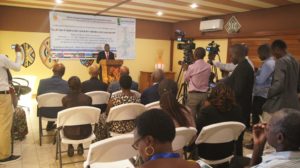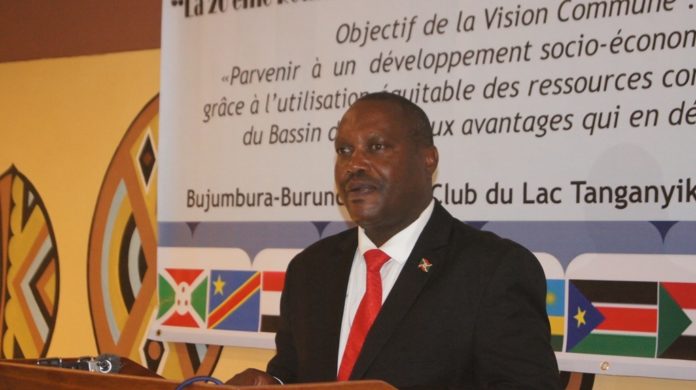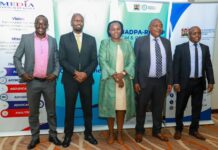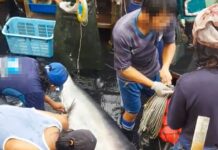By Gabrielle Mitch
Burundi’s Minister of Environment, Agriculture and Livestock, Hon. Deo Guide Rurema addressed journalists ahead of the 26th annual Nile Council of Ministers meeting. Reiterating the objective of the meeting was to deliberate on the status of the Nile cooperation and provide strategic guidance on how to move it forward.
The Minister noted during the press briefing that “Burundi stands to gain by working together with the rest of the Nile Basin countries and already we are seeing the fruits of this cooperation”. He highlighted the 80 MW Regional Rusumo Falls Hydroelectric Project, which will provide an additional 27 MW of renewable hydroelectric power to Burundi.

“This will increase the access rates by 5.4% (520,000 people) from the estimated access rate of only 10 percent at present,” Rurema said.
Burundi has been part of Nile cooperation since 1967. Hon. Rurema said this is natural because about 49.39% of the total country area falls in the Nile Basin and 58.8% of its population lives within the Basin.
He outlined the Hydromet project of 1967-1992, followed by UNDUGU that began in 1983 till 1992, umbrella bodies Burundi was a part of before it joined the Nile Basin Initiative (NBI) in 1999.
“Burundi also signed the Cooperative Framework Agreement on 28th February 2011,” he added.
The 26th annual Nile Council of Ministers meeting is expected to be attended by Ministers in charge of Water Affairs in the 10 NBI Member States, namely Burundi, DR Congo, Egypt, Ethiopia, Kenya, Rwanda, South Sudan, Sudan, Tanzania and Uganda. Others are Members of the Nile Technical Advisory Committee, Management staff of NBI as well as representatives of development partners and civil society.














